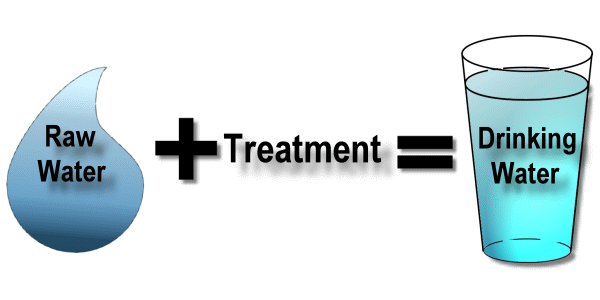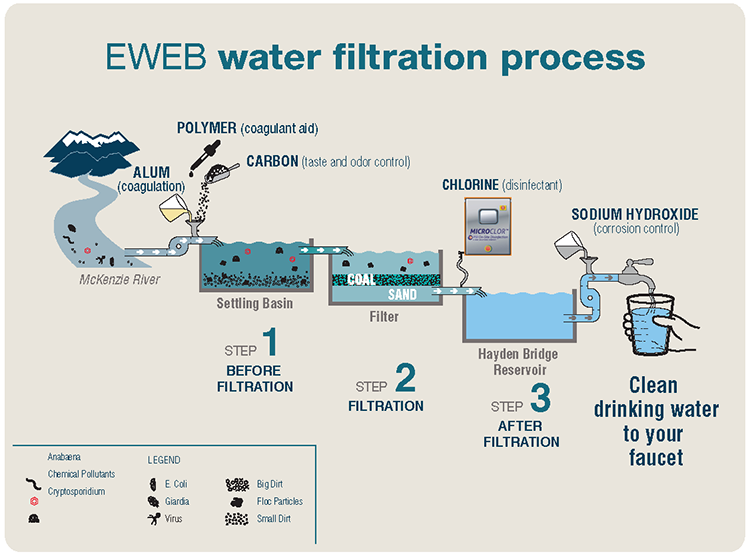Water Technology Startups: Due Diligence and Processes for Success
Wiki Article
Checking Out Water Technology Startups: How They Change Lasting Solutions
Water Technology startups are becoming crucial gamers in the pursuit for lasting solutions to global water concerns. These firms leverage innovative innovations to boost water performance and management. Their payments deal with pushing obstacles such as scarcity and contamination. In spite of their possibility, they deal with various challenges that can impact their success. Recognizing these dynamics clarifies the future of water sustainability and the role these startups might play fit it.The Importance of Water Technology in Today's World
As international water scarcity magnifies, the importance of water Technology ends up being increasingly noticeable. Water Technology plays a vital role in attending to the obstacles presented by lessening freshwater resources and raising demand. It incorporates a broad series of advancements, consisting of innovative purification systems, wastewater treatment modern technologies, and smart irrigation remedies. These advancements not only boost the effectiveness of water usage but also advertise sustainable practices throughout different markets, consisting of farming, sector, and metropolitan growth.Moreover, the value of water Technology prolongs beyond source administration. It promotes strength versus environment change impacts, such as droughts and floods, by giving flexible solutions for water conservation and management. Additionally, it supports public health and wellness by making sure accessibility to clean and safe alcohol consumption water. As the world encounters expanding water-related challenges, the combination of advanced water innovations is important for cultivating sustainable growth and protecting water accessibility for future generations.
Cutting-edge Solutions From Water Tech Startups
While standard techniques to water management have served their function, a new age of water tech start-ups is revolutionizing the industry with cutting-edge solutions (Water Technology Startups). These firms take advantage of sophisticated innovations to attend to pushing water concerns, such as shortage, contamination, and inefficient circulation. Several startups make use of expert system and artificial intelligence to enhance water use and anticipate demand, causing even more sustainable methodsFurthermore, several firms concentrate on developing sophisticated filtration systems that remove pollutants and make water secure for consumption. Others explore decentralized water therapy modern technologies, enabling areas to manage their water sources more effectively. Some startups are pioneering clever watering services that minimize water waste in agriculture, promoting environmental preservation.
Situation Studies: Successful Water Technology Startups
Numerous water Technology start-ups have arised as leaders in dealing with international water difficulties via cutting-edge techniques. One significant example is Xylem, which concentrates on water analytics and clever infrastructure to maximize water usage and decrease waste. Their remedies have actually been implemented in different towns, showing considerable improvements in water management performance.Another successful startup, Zero Mass Water, has created solar-powered hydropanels that remove water vapor from the air, providing sustainable drinking water in deserts. Water Technology Startups. This Technology has been deployed in numerous nations, making certain communities have access to tidy water
AquaVenture Holdings runs a diverse profile of water-as-a-service options, attending to water deficiency with desalination and wastewater therapy. Their tasks have actually verified vital in regions facing severe water lacks, showcasing the possibility of cutting-edge water modern technologies to produce enduring, positive influences. These study highlight the transformative potential of startups in the water Technology market.
The Role of Smart Technology in Water Management
Smart Technology plays a vital role in modern-day water monitoring by leveraging IoT applications to enhance resource usage. Information analytics improves performance by supplying actionable insights, while remote monitoring solutions allow real-time oversight of water systems. Together, these technologies transform just how water is taken care of, promoting sustainability and operational effectiveness.IoT Applications in Water
As water deficiency and administration obstacles heighten internationally, the assimilation of Internet of Points (IoT) applications has become a crucial solution in maximizing water sources. IoT Technology helps with real-time surveillance and evaluation of water systems, enabling extra efficient use and management. Sensors released in numerous water infrastructures can track quality, flow rates, and leak, giving important information to stakeholders. This data empowers consumers and utilities to make enlightened choices, minimizing waste and boosting conservation efforts. In addition, smart watering systems use IoT to maximize water delivery for farming, ensuring that plants get the correct amount of water at the appropriate time. In general, IoT applications are transforming typical water administration practices, promoting sustainability and durability in water resource systems.Data Analytics for Effectiveness
Utilizing information analytics is important for boosting efficiency in water monitoring. Water Technology start-ups are progressively utilizing advanced analytics to enhance source appropriation and lower waste. By evaluating information from numerous resources, these startups can recognize patterns and patterns that educate much better decision-making. Predictive analytics can forecast water demand, enabling energies to readjust supply accordingly, thereby decreasing shortages and excess. In addition, real-time data processing enables the prompt detection of leaks and inefficiencies within distribution systems, greatly lowering functional prices. Data-driven insights equip stakeholders to apply targeted conservation methods, promoting sustainable practices. Basically, integrating information analytics right into water monitoring not just enhances operations however likewise promotes long-term sustainability in water resource use.Remote Surveillance Solutions
While standard water monitoring systems frequently battle with inadequacies, remote tracking options are changing exactly how water resources are taken care of. These ingenious modern technologies enable real-time information collection and evaluation, allowing stakeholders to monitor water top quality, circulation prices, and usage patterns from afar. Utilizing sensing units and IoT tools, remote surveillance offers instant understandings that help with positive decision-making. This shift not just enhances functional effectiveness however also promotes sustainability by decreasing i thought about this water waste and enhancing resource allocation. Furthermore, remote tracking systems can determine possible issues prior to they escalate, consequently lessening the risk of contamination or framework failure. As water Technology start-ups remain to establish these solutions, the sector is poised for significant advancements in lasting water monitoring techniques.Obstacles Facing Water Technology Startups
Water Technology startups experience significant obstacles that can hinder their development and success. Secret concerns consist of securing appropriate financing, navigating with complicated governing atmospheres, and competing in a crowded industry. These obstacles call for critical preparation and advancement to get over.Funding and Financial Investment Hurdles
Advancement in water Technology holds immense potential for attending to global challenges, startups in this market typically face considerable financing and investment difficulties. Numerous investors stay mindful, viewing the water market as risky because of its complex governing landscape and long development timelines. Additionally, start-ups usually struggle to demonstrate immediate productivity, which can hinder potential backers. Traditional venture capital may forget water modern technology, favoring markets with quicker returns, such as tech or durable goods. Protecting grants and federal government financing can be competitive and lengthy, further complicating financial security. As an outcome, numerous innovative water Technology start-ups discover themselves in a perilous position, calling for innovative funding approaches to navigate these financial obstacles and accomplish their objectivesGoverning Conformity Issues
Guiding regulative conformity is a considerable obstacle for startups in the water Technology industry, as they need to face a myriad of regional, nationwide, and global guidelines. These policies commonly include water high quality standards, ecological security laws, and security methods, which can vary commonly across territories. Startups may discover it challenging to browse this complex landscape, particularly when scaling operations or going into brand-new markets. The expenses related to conformity can be significant, drawing away resources away from advancement and item development. In addition, delays in obtaining required authorizations or certifications can prevent development and market access. A durable understanding of regulative structures is important for these start-ups to assure lasting operations and avoid prospective legal consequences.Market Competition Dynamics
As water Technology start-ups arise in an affordable landscape, they deal with various difficulties that can impede their growth and innovation. Developed firms often dominate the market, leveraging sources and experience to keep their settings. Startups battle with limited funding, which restricts research and advancement capacities, making it challenging to contend on Technology and prices. In addition, the rapidly evolving nature of water innovations demands consistent adaptation, further stressing start-up sources. Governing obstacles can complicate market entrance, as compliance with ecological requirements is vital yet costly. Drawing in skilled ability in a niche field offers one more barrier, as bigger firms might provide even more appealing employment plans. As a result, these aspects create a complicated setting for water Technology startups aiming to be successful.
The Future of Water Technology and Sustainability
The future of water Technology will likely concentrate on integrating artificial knowledge and data analytics to optimize water circulation and use patterns. By utilizing real-time information, firms can forecast scarcities and take care of resources more properly. Sustainable methods will certainly come to be a cornerstone of the industry, motivating circular economies where water is reused and dealt with. Ultimately, the continued advancement of water Technology will certainly be crucial in creating resistant infrastructures efficient in fulfilling the challenges positioned by climate adjustment and population growth while advertising environmental stewardship.
Frequently Asked Inquiries
What Are the Key Metrics for Assessing Water Technology Startups?
Secret metrics for assessing water Technology startups include market possibility, scalability, client purchase prices, income growth, modern technology development, governing compliance, ecological influence, affordable advantage, and team competence, all important for establishing long-lasting practicality and success.How Can People Assistance Water Technology Innovations?
Individuals can support water Technology advancements by investing in startups, supporting for policy changes, joining community campaigns, sharing understanding concerning sustainable techniques, and promoting awareness of water concerns via social media and local events.What Are Typical Financing Sources for Water Technology Startups?
Typical funding resources for water technology start-ups include venture funding, federal government gives, crowdfunding systems, angel financiers, and corporate collaborations. These financial opportunities assist facilitate innovation and development in sustainable water administration modern technologies.
Which Industries Advantage Many From Water Technology Advancements?
Industries such as farming, power, production, and local services profit considerably from water Technology innovations. These advancements enhance water effectiveness, reduce costs, and advertise lasting practices, go to my site ultimately adding to ecological preservation and source management.Are There Any Regulatory Challenges Specific to Water Technology?
Yes, water Technology faces regulative obstacles, consisting of conformity with ecological criteria, permitting procedures, and differing regional regulations. These complexities can hinder development and reduce the application of brand-new innovations in the water administration field.Water Technology start-ups are emerging as essential gamers in the pursuit for sustainable options to worldwide water concerns. As worldwide water deficiency heightens, the significance of water Technology ends up being progressively obvious. Others discover decentralized water go to my blog treatment modern technologies, allowing areas to handle their water sources more effectively. Another successful start-up, Zero Mass Water, has established solar-powered hydropanels that remove water vapor from the air, giving lasting drinking water in arid areas. Their tasks have verified important in areas facing extreme water shortages, showcasing the possibility of ingenious water modern technologies to create enduring, positive effects.
Report this wiki page